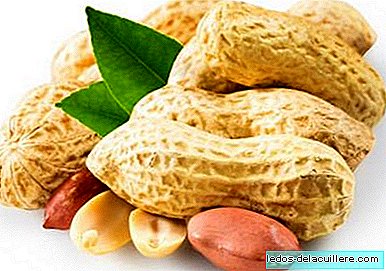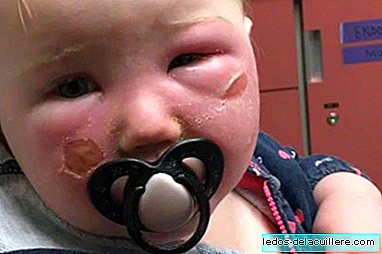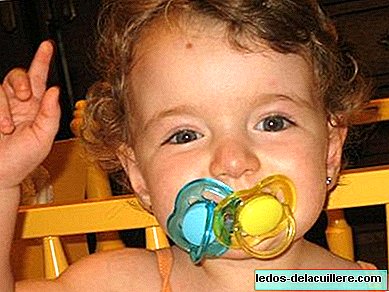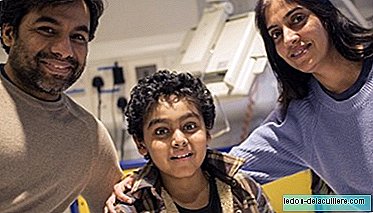
Nuts are the cause of the most common food allergies in children, along with milk, fish and eggs. Among the nuts, peanuts are the ones that cause the most allergies.
That is why for years pediatricians are recommended to avoid the consumption of peanuts to children under three years old to avoid possible risks. But according to the conclusions of a new study by researchers at King's College London, Allowing babies to eat peanuts could prevent them from developing allergy to this food.
The investigation was carried out with 530 babies between 4 and 11 months at high risk of developing peanut allergy, babies who had previously developed eczema, an early sign of allergies.
They were divided into two groups: half were given a snack based on peanuts, never whole, due to the risk of suffocation, (I hope it was not for babies under six months), while the other half of the Babies completely avoided peanuts.
According to the trial, 14 out of 100 children are expected to develop an allergy to peanuts at the age of five. But after the test, the figure was surprisingly reduced by 86%, only two out of every 100 children.
At the age of 5, the prevalence of allergy in the group that had avoided consumption was 17.2 percent, while in the group of children who had tried them, only 3.2 percent.
On the other hand, among the little ones who were already becoming sensitive to peanuts, the allergy rate was reduced from 35% to 11%.
The results are quite strong, really. According to the results of the study, the researchers believe that the early consumption of peanuts is an effective way to prevent allergy to this food.
Avoid them until three years old
Current recommendations on nuts in infant feeding, including peanuts, establish avoid consumption until at least three years of age.
After three years they can be introduced gradually controlling any possible reaction and always in the form of products, never whole because of the risk of suffocation, up to 6-7 years, according to the AEP.
It is not the first time that it is recommended to advance the introduction of a food as a way to generate immunity in the child and thus prevent a possible allergic reaction in the future.
For now, we will follow the current recommendations waiting for the results to be reviewed and whether or not to change the age of introduction of the caches in infant feeding.












